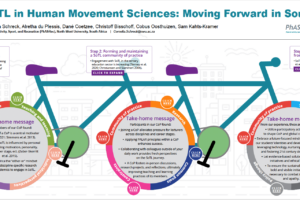
Participation in Higher Education Classroom Discussions: How Students’ Identities Influence Perspective Taking and Engagement
By Crystena Parker-Shandal
As a university educator for the past 15 years, I have witnessed two common themes: students across multiple identities tend to avoid classroom discussions that engage with conflictual perspectives, and instructors often shy away from exploring controversies. Instructors’ choices on whether to invite dialogue about contentious issues in the classroom vary. While some might see the pedagogical benefit, others intentionally constrain spaces for discussion to maintain a sense of neutrality or political correctness. In general, classroom discussions allow students to learn valuable communication strategies and develop tools and skills for interacting with others—while also building their confidence and comfortability in vocalizing their perspectives. When divergent views are shared, these discussions allow students to examine how their perceptions and understanding of the world are formed. Still, the intersection of power and privilege in classroom dialogue shapes who participates and how they participate. For instance, when discussing racially charged issues or identity-based conflicts, what people share in class can reinforce or interrupt racist or discriminatory ideologies. Understanding how students experience instructors’ facilitation of discussions can provide critical insight into determining how contentious issues impact students’ participation in the classroom.
Considering this, I set out to study how undergraduate students experienced classroom discussions. Many factors (including familial perspectives, media, and formal education) influenced students’ views and perceptions of social issues. The results of this study illustrate the need for higher education instructors to not only deliver content but to critically engage in dialogue that disrupts deficit perspectives about marginalized groups. In the ideal classroom, people from various backgrounds and positionalities are all free to participate in democratic discourse. I’m grateful for the University of Waterloo’s Learning Innovation and Teaching Enhancement (LITE) Grant program, which provided funding to support me in conducting this research. I thank Dr. Kyle Scholz at the Centre for Teaching Excellence at the University of Waterloo for working with me through the research proposal stage and for providing feedback on this article.
Find the TLI article here.




